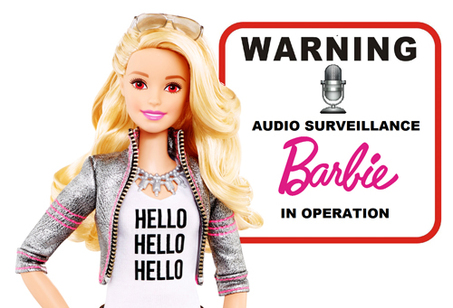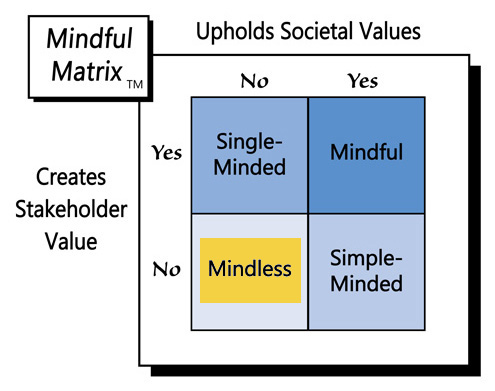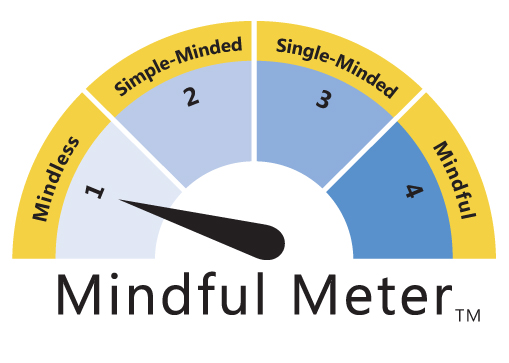For some children this holiday season, the toy they covet is a very unique doll—one that talks. Of course, dolls have been talking for decades, so what makes this one special? The difference is that this doll also listens and offers relevant responses. Her name is “Hello Barbie,” and she’s being billed as the “World’s First Interactive Barbie Doll.”
Mattel, the planet’s second biggest toy producer and the maker all things Barbie, started selling the iconic doll in 1959. Since that time, Barbie has fascinated many generations of children, as the brand’s namesake doll has taken on a variety of ethnicities and numerous occupations including doctor, astronaut, and NASCAR driver.
How is Hello Barbie able to interact? Mattel has built into Barbie WiFi receptivity and speech recognition technology, which a parent initially activates using a smart device (phone, tablet, etc.) and a downloadable Hello Barbie app. Setup also involves establishing an on-line account with ToyTalk, a third-party service provider that handles the recording and uploading of conversation with Hello Barbie to the Cloud, where the information is processed and fed back down to Barbie in the form of a relevant response.
Here’s some of what Mattel says on its website to promote the new product to on-line shoppers:
“Now, you can chat with Barbie®! Using Wi-Fi and speech recognition technology, Hello Barbie™ doll can interact uniquely with each child by holding conversations, playing games, sharing stories and even telling jokes . . . She's ready to discuss anything in an outfit that blends trendy and techie for a cool look. Use is simple after set up -- push the doll's belt buckle to start a conversation, and release to hear her respond. More than 8,000 lines of recorded content means countless hours of fun! Just like a real friend, Hello Barbie™ doll listens and remembers the user's likes and dislikes, giving everyone their own unique experience.”
She sounds like fun, so why has the Campaign for a Commercial-Free Childhood chosen Hello Barbie as its “Worst Toy of the Year,” and why are some news media saying she may be the worst toy ever? It’s because Hello Barbie can be a bit of a blabber, i.e., what’s shared with Hello Barbie doesn’t necessarily stay with Hello Barbie.
ToyTalk’s privacy policy says that the company collects parents’ email addresses for purposes of consent, that it may automatically capture recordings of children under the age of 13, and that it may collect certain “advertising identifiers,” which “may be considered personal information under COPPA,” the Children’s Online Privacy Protection Act. The company acknowledges that children may “provide additional information” during their interactions and promises to delete such content; however by virtue of their parental accounts, parents also have access to these recordings and may even share them on third-party sites.
How will ToyTalk use the information it collects and keeps? The company first says that it will use it to “to provide, maintain, and analyze the functioning of the Service, to develop, test or improve speech recognition technology and artificial intelligence algorithms, and for other research and development and data analysis purposes.” ToyTalk adds that it won’t use the recordings to “contact children or to advertise to them”; however, it also says that it may use identifiers for “contextual advertising” as well as to “determine the popularity of certain content.”
Based on these policies, there should be a least some suspicion of how much Hello Barbie can be trusted, but these aren’t the only concerns. Perhaps an even bigger worry is the security of the system. For one thing, the doll uses a digital ID that’s susceptible to spying by anyone who can hack into the toy/server connection—a vulnerability of both the Android and Apple versions of the Hello Barbie app. In addition, researchers at Bluebox, a San Francisco-based security firm, “found that phones with the app will automatically connect to any Wi-Fi network that includes “Barbie” in its name.” Furthermore, the server/doll connections are vulnerable to an encryption-busting bug called Poodle.
These fatal flaws haven’t gone unnoticed. In fact, attorneys recently filed a class-action lawsuit in Los Angeles Superior Court against Mattel, ToyTalk, and kidSAFE, an organization that’s supposed to ensure that toys comply with COPPA. A key point of the legal action is that “there aren’t enough protections in place to be sure that the voice coming from Barbie is that of the actual toy and not a predator who has hacked it.” That should be a very scary thought for any parent.
In sum, there’s little hope that what young users share with Hello Barbie will stay a secret between them and their toy. That lack of privacy should be a big concern for any consumer group, but especially for one that's very vulnerable to abuse, like children. Given the considerable risk involved in using such a toy, it’s doubtful that Hello Barbie will see significant sales, or create much stakeholder value. Likewise, because of its disregard for privacy and lack of fairness to children, the toy compromises key societal values. As a result, Hello Barbie has earned another dishonor, that of “Mindless Marketing.”
Learn more about the Mindful Matrix and Mindful Meter.
Check out Mindful Marketing Ads and Vote your Mind!




 RSS Feed
RSS Feed